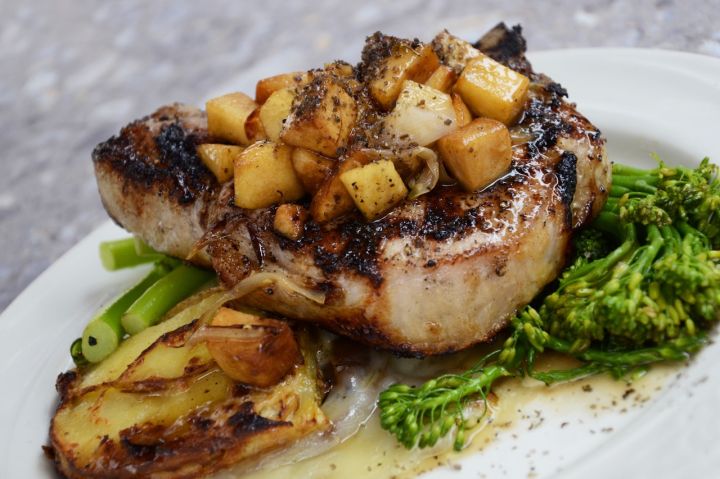Have done enough training, have your own diet plan, worked your butt off and still haven't reached your fitness goals? Do you really understand your lean physique, how you eat but don't grow, and how your muscle circumference is far below expectations?

Backstage many partners, last week are anxious to know how to increase to do? The method we have not yet announced for the time being, when they understand their own lean body mass better, the method is also just a reference, and the partners can also customize themselves.

do lean body types usually have smaller stomachs?
Whenever trying to consume more calories, you will always feel bloated, nauseous and lethargic in the hours after the meal. After trying to eat more for a few weeks, the stomach acid starts to flow backwards and you find that you can't fit as much food in your stomach.
Some people even try the 'junk food muscle building method' - getting more calories from sweets, snacks and fats - and still struggle to gain weight. It seems that no matter what you eat, your body has to resist weight gain.

it has been proven that the size of each person's stomach is different. Studies have found that the size of a person's stomach varies by 600% between individuals, meaning that another person as tall as you could have a stomach six times as big as yours.
This also explains, simply and crudely, why ectomorphs have smaller stomachs. Ectomorphs have narrower bodies and shallower ribs, leaving less room for organs. However, the size of the rest of the body's organs is fairly constant, so the ectodermal type's stomach shrinks to a very small size.

research also confirms that having a small stomach makes it difficult to gain weight. Another study has shown that the smaller a person's stomach is, the fewer calories he can consume per meal and the less weight he is likely to weigh.
Interestingly, unlike in vitro skeletal structures, we actually have more control over the size of our stomachs. In the third study, researchers recruited a number of volunteers and divided them into two groups. One group ate a normal amount of food, while the other was forced to eat a very small amount of food. After four weeks, the stomachs of those who ate only small amounts of food had shrunk by 36%. The researchers concluded that the size of the stomach could be adapted.

this suggests that by gradually increasing the amount of food eaten, the size of the stomach can be increased. However, this does not help us when we want to build muscle. The problem that ectodermal types encounter at the very beginning of muscle building remains that their stomachs are too small. However, there are strategies to make it easier to add more calories and there are many good muscle building foods to choose from.
In a nutshell, people with leaner bodies usually have smaller stomachs, especially if they are not used to eating larger amounts of food. However, when we get fatter, our stomachs get bigger too.

lean body types tend to have high body insulin sensitivity
in the case of ectomorphs, according to research, insulin sensitivity is one of the advantages of having enhanced muscle mass. Good insulin sensitivity is a genetic advantage that provides many benefits to the body, including the ability to increase lean body mass. However, it can also make it more difficult to gain weight. If you can't gain weight, then you can't gain muscle at all, let alone lean body mass.

about how does insulin work?
When insulin levels are low, the body feels hungry. When you eat, insulin levels rise and insulin delivers nutrients to insulin-sensitive areas (such as muscle and fat). The increase in muscle or fat depends on many different factors, such as genetics, the foods you eat, whether you have recently strength trained, how fat you are, and whether your fat cells are full.

when insulin levels rise and you start to feel full, you stop eating. The problem is that when you have eaten enough food to maintain your weight, the rise in insulin levels makes you feel full. For someone with a lean body mass, feeling full is no joke. Because the body is so sensitive to insulin, the feeling of fullness can be so intense that continuing to eat can be so overwhelming that it is difficult to gain weight.

this is very different from the typical overweight person, where being overweight reduces the body's sensitivity to insulin, so these signals are slow and sluggish. When overweight people feel full, not only have they produced too much insulin, but they have already eaten too much food. Their sense of fullness is weaker and therefore easily ignored.
If the average person wants to gain weight, they can easily do so. That's why you often hear overweight people telling thin people to "Eat more", because they think it's easy for thin people too.

it should be clear that insulin is part of the body's weight regulation system. The whole purpose of this system is to keep the body at the same weight day after day, year after year. Insulin will make it very difficult for you to gain weight.
If you are underweight now, as many ectomorphs are, then gaining muscle can significantly improve our health, strength and appearance. And people who are insulin sensitive have a much harder time doing this. However, insulin has another role to play and it affects the nature of our weight gain.

if you're already tired of reading this, hang in there and see it through!
This phenomenon is known as nutrient distribution and it works like this.
If fat cells are more sensitive to insulin, they will grow more fat. If muscle is more sensitive to insulin, you will gain more muscle.
Overweight people often have the problem that fat cells are more sensitive to insulin than muscle fibres, so elevated insulin levels can lead to weight gain. People with a naturally lean physique tend not to have these problems, especially if they have done strength training and get enough rest at night.

if the weight gain plan followed is good, then muscle fibres will be more sensitive to insulin than fat cells, and when insulin levels rise (by consuming protein and carbohydrates), more nutrients will be delivered to muscle rather than fat.
This is where many lean people get confused, they see all their overweight pals trying to reduce insulin to get rid of fat without realising that insulin is also responsible for muscle growth.

studies have shown that when we train for muscle gain, insulin sensitivity in our muscles rises even higher over a 72 hour period. During this time, the extra calories we consume are more likely to be used for muscle growth, not by limiting carb intake but by eating a lot of it, and not by skipping breakfast but by eating an extra meal. Protein and carbohydrates need to be added to the extra meals.
Essentially, we want to stimulate muscle growth through training and then create a physical environment that delivers nutrients for muscle growth throughout the day.

interestingly, just as bulking makes fat cells more sensitive to insulin, bulking also makes muscles more sensitive to insulin. Thus, high insulin sensitivity makes it easier to build muscle, and training muscle further improves our insulin sensitivity. This is one of the reasons why lean body builders can gain lean muscle quickly.
In conclusion, one reason why weight gain is difficult is that when enough food is eaten to maintain weight, because the body is insulin sensitive, appetite decreases. When we follow a good muscle building training and diet plan, the factor of high insulin sensitivity can help us gain lean weight faster and better.

lean body types do have a faster metabolism
many ectomorphs feel like a bottomless pit of calories. No matter how much food is shoved into their mouths, the weight on the scale doesn't change. Why is this? Is the metabolism really that much higher than the average person?
Some experts believe that underestimating the amount of food you eat is one of the reasons. Sometimes stress and busyness can also lead to a loss of appetite and forgetting to eat. For some thin-bodied people, these few reasons may explain it.

however, naturally thin people, who have a larger body surface area, burn more calories compared to shorter and fatter people, which partly explains it.
When the researchers looked at fat gain in the over-eating study, they found that some participants did not gain weight even after consuming a large number of extra calories.

what did you learn from the overeating study?
In one study, participants consumed an extra 1,000 calories a day for eight weeks and were unable to train. After eight weeks, most had gained a lot of fat, with one person gaining 4kg in weight. This is normal and exactly what the researchers expected: If you eat too much, you gain weight. If you eat too much and don't exercise, then most of the weight gained is fat.
However, there were a few participants who gained almost no weight, and one gained only 0.4kg, which was so confusing that they were called lean-body people. Interestingly, the researchers had no idea where these extra calories went, as if they disappeared into thin air.

another group of researchers found that extra calories were burned through unconscious activities, such as fidgeting and adopting strange postures. While this may not sound like a big deal, its impact is huge. Thin-bodied people burned 50% more calories sitting in a chair than the average person, and when they stood up, they burned 80% more calories than the norm.
Depending on how long you stand up each day, lean body types can burn an extra 600-950 calories, which explains how 1,000 calories disappear. That's not all. Studies have found that lean body types will spend an extra two hours a day standing and burn an extra 350 calories.

to put it another way, an average man eats the equivalent of 13 times his body weight in calories per day to be able to maintain his weight. If he weighs 150 pounds, that means he's eating about 2,000 calories a day. If he eats more than that, he may start to put on weight.
On the other hand, a "Lean person" Can eat 22 times their body weight per day without gaining any fat. For a person weighing 150 pounds, this is equivalent to 3,300 calories per day. Considering their high insulin sensitivity and small stomachs, this is a big difference.

lean body types can maintain their weight with both types of caloric intake. If a 150 lb lean body mass person consumes 2,000 calories a day, the metabolism will slow down and the weight will stay the same. If he starts consuming 3300 calories, he would be expected to gain weight, but doesn't because his metabolism speeds up and burns excess energy.
This is not to say that a lean body builder's metabolism always runs faster, just that it speeds up when more calories are consumed.

in short, lean body types have a very difficult time consuming more calories, and even when they do, their metabolism usually adapts to the intake of more calories, making the effort futile. So how exactly do you get rid of your lean body mass?





